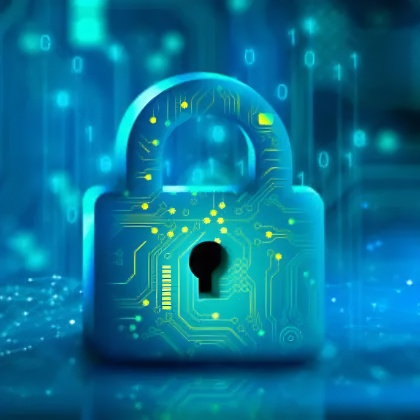
In the modern digital era, cybersecurity has become a crucial aspect of every organization. Protecting sensitive information and maintaining the integrity of data is paramount to business success. Understanding the key roles and responsibilities in cybersecurity helps organizations build a robust defense against potential threats.
This article will explore the essential positions within a cybersecurity team and the specific duties each role entails. By recognizing these roles, businesses can better equip themselves to safeguard their digital assets and ensure compliance with security standards.
Chief Information Security Officer (CISO)
The Chief Information Security Officer plays a pivotal role in establishing and maintaining an organization’s security vision and strategy. As a senior-level executive, the CISO is responsible for aligning security initiatives with business objectives to protect the company’s assets, technologies, and data.
One of the primary responsibilities of a CISO is to develop and implement a comprehensive cybersecurity program. This includes policies and procedures designed to protect enterprise communications, systems, and assets from both internal and external threats. The CISO also oversees the response to security incidents and ensures proper protocols are in place.
Additionally, the CISO collaborates with other executive leaders to ensure cybersecurity risks are understood and managed appropriately. By providing regular reports on the state of the organization’s security posture, the CISO helps inform decision-making at the highest levels.
Security Analysts and Engineers
Security analysts and engineers are on the front lines of defending an organization’s network and systems. They monitor networks for security breaches and investigate violations when they occur. This role involves installing and using software, such as firewalls and data encryption programs, to protect sensitive information.
These professionals are responsible for conducting vulnerability assessments and penetration testing to identify weaknesses in the system. By proactively seeking out potential threats, they help prevent security incidents before they happen. They also stay up-to-date with the latest security standards, systems, and authentication protocols.
In addition to threat detection, security analysts and engineers develop strategies to improve the overall security posture of the organization. This can involve recommending security enhancements to management or advising on changes to security policies.
Security Architects
Security architects design and oversee the implementation of network and computer security for an organization. They are responsible for creating complex security structures and ensuring that they function effectively. Their role is crucial in safeguarding the organization’s infrastructure from cyberattacks.
A security architect begins by thoroughly understanding the organization’s systems and identifying potential security risks. They then design security architecture solutions that can detect, mitigate, and prevent these threats. This often includes selecting and implementing security hardware and software, as well as defining security protocols and procedures.
Moreover, security architects work closely with other departments to integrate security measures into all aspects of the organization’s operations. They ensure that new projects or initiatives comply with security standards and do not expose the organization to new risks.
Security Auditors and Compliance Officers
Security auditors and compliance officers ensure that an organization adheres to external and internal security policies and regulations. They perform regular audits to assess the effectiveness of security measures and verify that the organization complies with laws such as GDPR, HIPAA, or PCI-DSS.
Their responsibilities include reviewing security policies, standards, and procedures to ensure they are up-to-date and effective. They also conduct risk assessments and analyze security controls to identify areas of improvement. By doing so, they help the organization avoid legal penalties and maintain a trustworthy reputation.
Furthermore, these professionals are tasked with educating staff about compliance requirements and the importance of following security protocols. They often develop training programs and resources to promote a culture of security awareness within the organization.
Incident Response Teams
Incident response teams are dedicated groups that prepare for and react to cybersecurity incidents. Their main goal is to manage and minimize the impact of security breaches or cyberattacks when they occur. This team is essential for restoring normal operations quickly and efficiently.
The responsibilities of an incident response team include developing and updating the incident response plan, conducting regular drills, and ensuring all team members are familiar with their roles during an incident. When a security event occurs, they work to identify the source, contain the threat, eradicate the issue, and recover affected systems.
After resolving an incident, the team also performs a post-incident analysis to understand what happened and how to prevent similar events in the future. This continuous improvement process strengthens the organization’s overall cybersecurity resilience.
In Conclusion
Understanding the important cybersecurity roles and their responsibilities is vital for any organization aiming to protect itself in the digital landscape. Each role, from the CISO to the incident response team, plays a specific part in building a comprehensive security strategy that defends against threats and ensures operational integrity.
To bolster your organization’s cybersecurity efforts, consider partnering with experts who specialize in creating robust security solutions. Our team at Cyber Craft Networks in Southlake, TX offers a wealth of experience in safeguarding businesses against digital threats. Reach out to us today for a free quotation on our cybersecurity services or to discuss how we can assist with your specific needs.
Mike Young is a cybersecurity expert with over 15 years of experience. As the leader of Cyber Craft Networks in the Dallas/Ft. Worth area, he specializes in fortifying businesses against digital threats. Mike’s commitment to excellence ensures comprehensive IT support and advanced cybersecurity solutions for businesses of all sizes.
